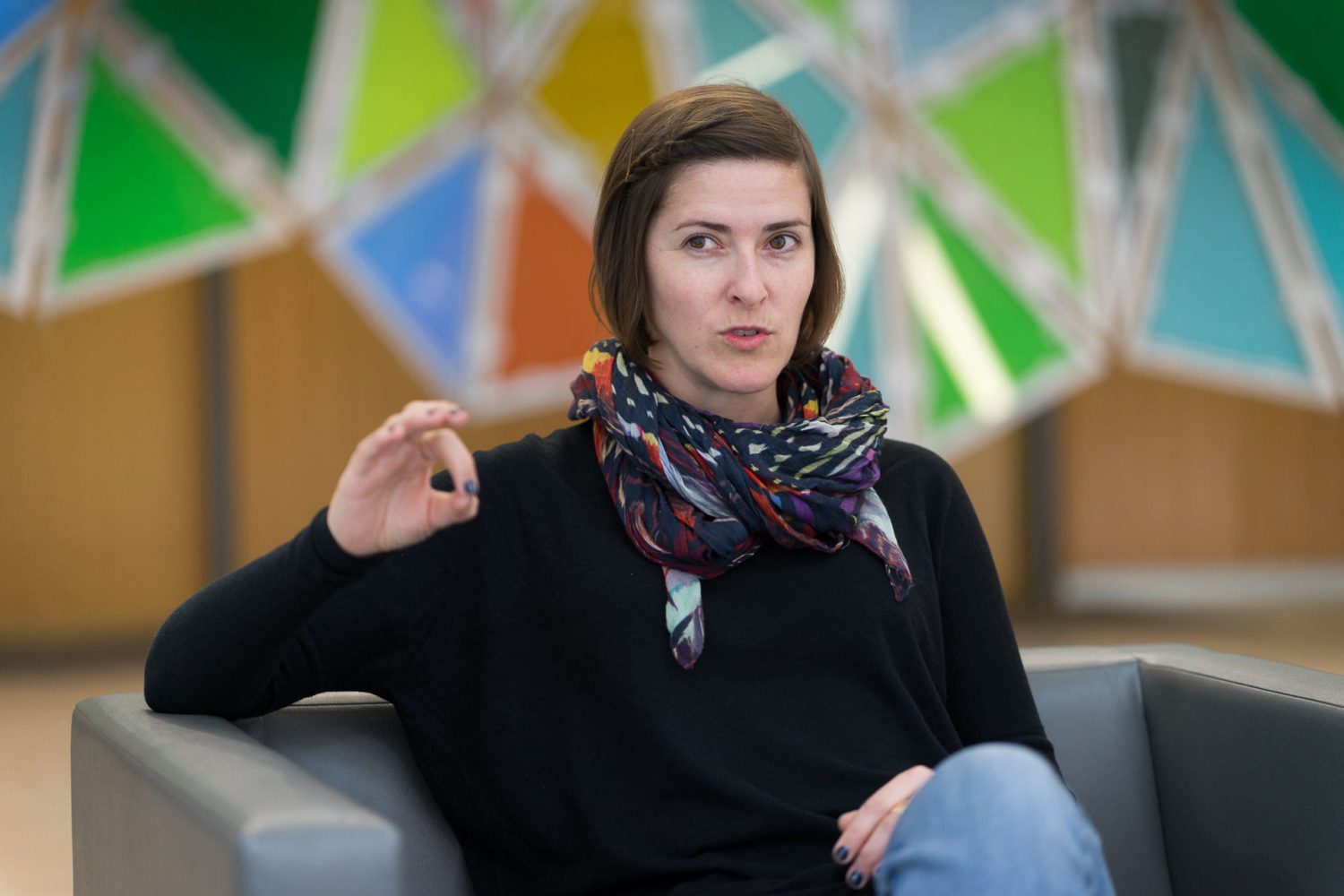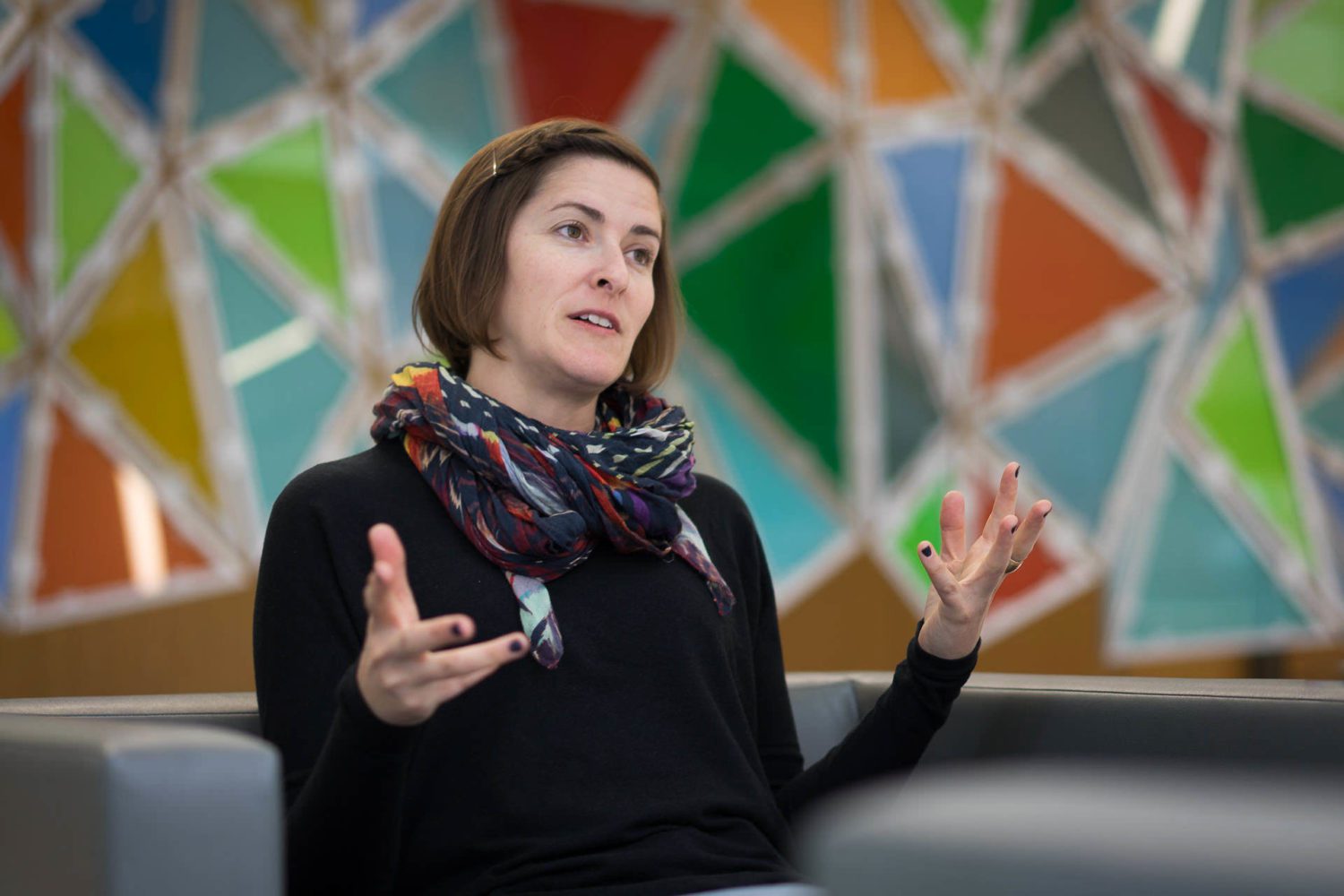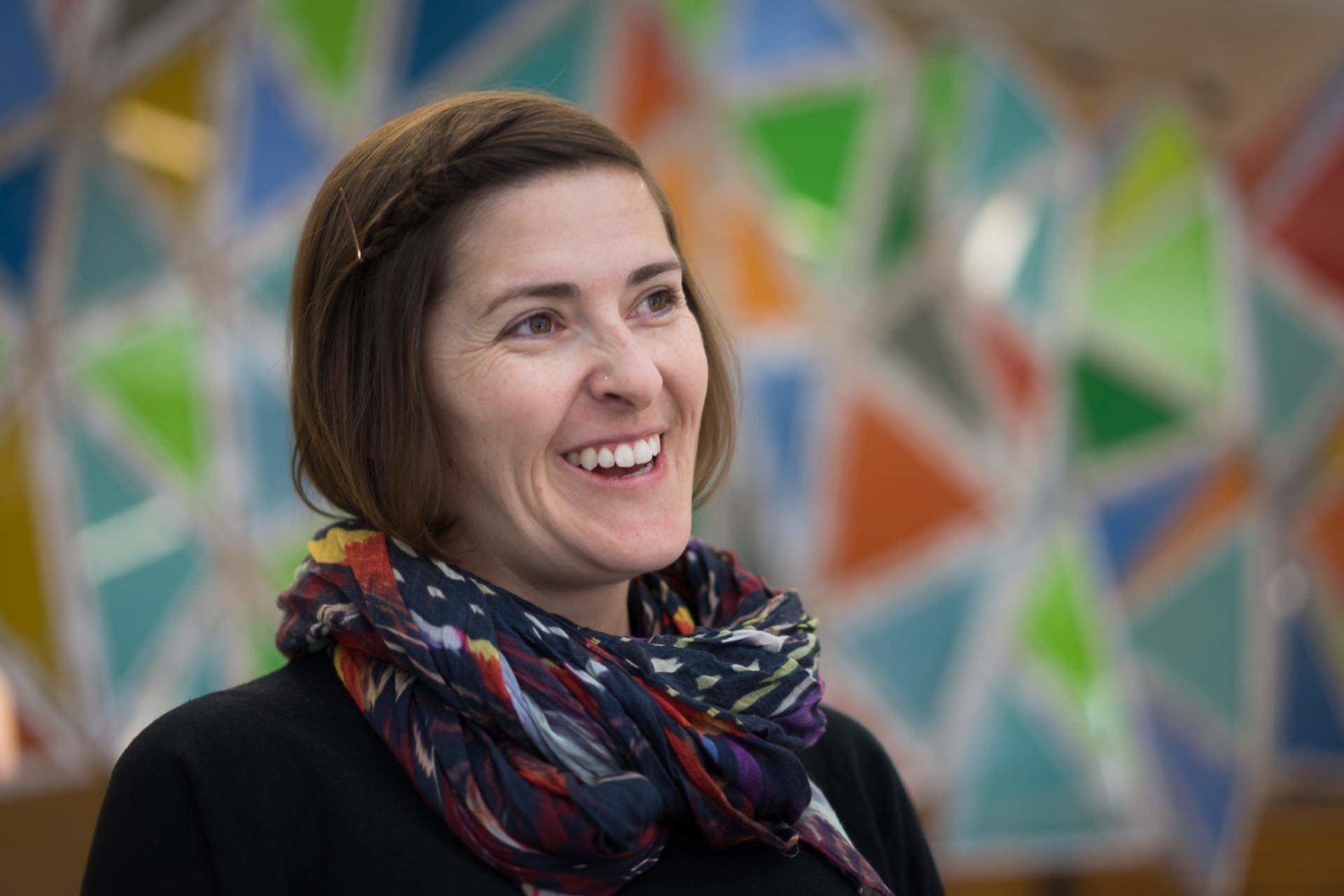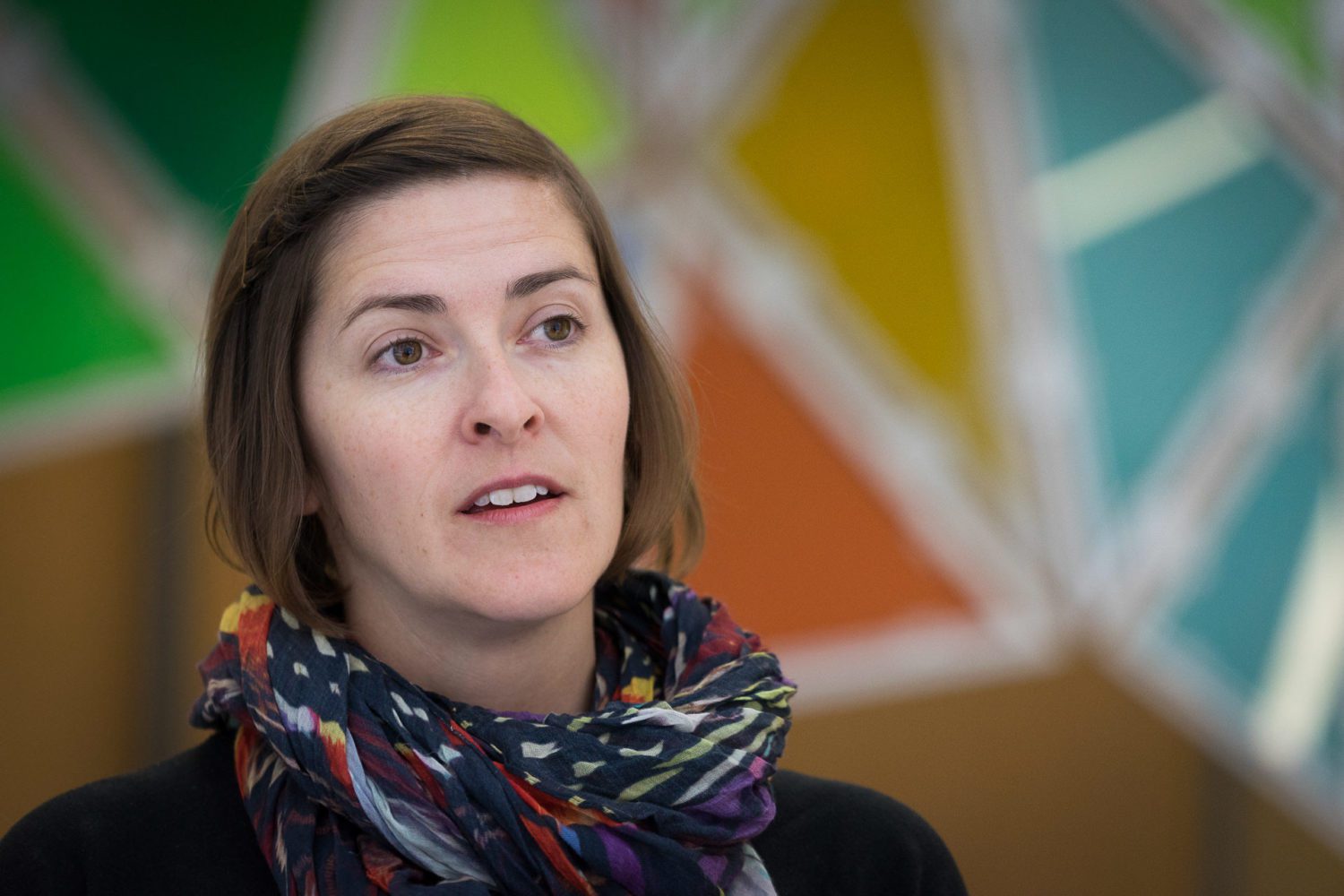Anna is a music teacher-turned-artist who suffers from migraines. She shares her constant search for effective treatment and how she educated herself about her disease online
“I had my first migraine in 2012. At the worst point, I was getting 15 to 20 disabling attacks a month. Now I am in the four to nine range, lasting anywhere from three to 12 hours. I experience head pain, but the most disabling symptoms for me are fatigue, nausea and full body aches, almost like the flu.”
“My family doctor prescribed a commonly used drug for migraines, but it wasn’t terribly effective. I ended up taking quite a lot of them, and that very quickly led to a headache that was actually caused by overuse of that drug. Then I was stuck in a cycle.”
“I asked for a referral to a headache specialist, but it took just under a year to get in to see her. If someone has frequent and severe migraines, they need to see a specialist right away. I would have probably been in much better shape if I had had access to preventative medication as soon as possible.”
“The headache specialist didn’t offer any cures or miracles. But she knew about some medications that my GP never mentioned, and she gives me Botox injections, which have been helpful. She has also really pushed me on some of the lifestyle stuff, like exercise. It’s been slow and steady process with gradual improvement and some lapses.”

“I have learned almost everything I know about migraine from the Internet, with some additions from my specialist. I have spent hours and hours going down every rabbit hole I can find looking for different treatments. There are so many people out there claiming that they have the answer. It was very tricky in the beginning to sort the wheat from the chaff.”
It was very tempting to try so-called cures. At one point I found myself downing a tablespoon of salt at the onset of a migraine attack. I then immediately thought, ‘This is crazy!’
“Eventually I found reputable websites and started looking more at research, searching for double blind placebo studies and things like that. But it’s largely been trial and error. Some therapeutic approaches like massage therapy and acupuncture have helped, but only with certain practitioners. Others have exacerbated the pain. It’s similar with the drugs. Botox only helps about 50 percent of people.”
“What works for every person is different. That’s why it takes so long to develop an effective treatment plan. At the end of the day I find myself just going with my gut. I look at the science, and then I go with my gut.”
How do you decide which websites to trust?
“I look for the big names, like the American Migraine Foundation. Most of the research they mention seems to be funded by pharmaceutical companies. I worry that there’s likely some bias there. But since the association isn’t selling anything, I tend to trust it more than websites that are selling migraine surgery and insist that it’s very effective.”

“I started a blog because I was more or less bedridden with my migraines. I was on sick leave from my work as a teacher. I was bored, distraught and scared. I desperately needed to connect with people who were experiencing the same thing as me. I needed some cathartic relief. Much to my delight, people responded.”
I have joined Facebook groups around migraine and there’s a solid community of people on Twitter who connect about migraine. Sometimes it’s nice just to see the images that people put up, and I feel less alone. To know that someone else feels like the light is making a sound, or perfume is sending daggers into their forehead.
“It’s sometimes just nice to be like, ‘Oh yeah, I am not the only one.’ It has also been a really good way to connect with fellow advocates. We talk about the best ways to disseminate accurate information.”
“In terms of bad experiences, I’ve had people target me to sell their cures and hawk their ebooks. Sometimes I push back and say, ‘You know, there is no cure for migraine and I would really appreciate if you would change your language.’ In rare instances, people have been very rude. But I would say that’s an anomaly.”
“I have also just started an organization called Migraine Ontario with a friend. The motivation was that there was nothing that we could find where we could connect with people, and go out for coffee and talk about local services.”

“When this all started I was a full-time music teacher. I ran the choir and taught several vocal classes. After three years of trying to make it work I came to the realization that my health was not going to improve in a trigger-filled environment. High schools are full of perfume and loud PA announcements and fire alarms. And stressful, adrenaline-infused moments.”
“When I realized that this was likely to be chronic for a long time, it was a crazy blow. I mean you don’t think in your mid-20s that something like that is going to happen to you. I loved teaching and I imagined that I would do that for the rest of my life. It has been hard to let go. But now I work almost full-time from home doing freelance writing and art.”
“If I could go back in time and not have migraine I would probably choose that route. However, now I feel so much more adaptable and versatile than ever. It was kind of exciting to find out that I was a decent writer and that I can paint and people will buy my work. In some ways it’s been a confidence boost.”
I still don’t feel like I have 100 percent accepted it. There are days where I wake up and go, ‘Maybe three or four months from now I will apply to a full-time guidance job and maybe I should join the local choir.’
“And then I go, ‘Okay, look at your migraine calendar. Let’s be realistic. Do the things that work for you.’ The road to acceptance may be never-ending, but I think it gets easier.”

“The American Headache Society had a Migraine Moment Contest. The idea was to convey a migraine moment in a short film. I wanted to do it because writing about my experience with migraine has been so helpful for me, and song writing has been something I’ve enjoyed. I felt it would be an opportunity to turn around and kick migraine in the pants.”
“I wrote and sang the song. I have an old high school friend who is a fancy cinematographer and he helped me with the project. And I won! There was a lot of really great feedback. A few people said this doesn’t represent the extreme disability migraine can cause, which is true. But it was my story, and I am not completely incapacitated by migraine.”
What response touched you the most?
“When my mom came to visit and I played it for her and she just started bawling within the first 20 seconds.”


The comments section is closed.